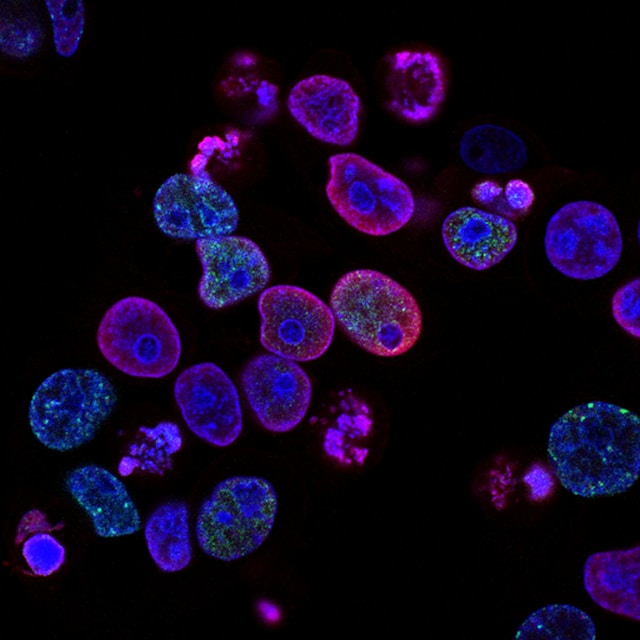A groundbreaking new study has shed light on a key molecule responsible for the spread of cervical squamous cell carcinoma—a form of cervical cancer that accounts for nearly 80% of all cases. This revelation has opened the door to potential new therapies that could dramatically reduce the spread of the disease, specifically targeting its movement to the lymph nodes. As metastasis is the biggest challenge in treating advanced cervical cancer, this discovery offers new hope to patients around the globe.
The Hidden Culprit: Circular RNA and Its Role in Cancer Spread
Cervical cancer, particularly squamous cell carcinoma, often metastasizes to nearby lymph nodes, making it difficult to treat. Once the cancer reaches the lymph nodes, the 5-year survival rate plummets from 95% to a mere 33.3%, according to findings published in Advanced Science. Researchers have now identified a previously unknown circular RNA molecule, named LNMAC (lymph node metastasis-associated circular RNA), which is instrumental in this metastasis process.
Circular RNA is distinct from the better-known messenger RNA (mRNA), which many are familiar with due to its role in COVID-19 vaccines. Unlike mRNA, which is linear, circular RNA forms a loop, allowing it to remain more stable and less susceptible to degradation inside the cell. Researchers discovered that patients with metastatic cervical squamous cell carcinoma exhibited higher levels of LNMAC, directly correlating to a shorter overall survival.
Unraveling the Mechanism: How LNMAC Fuels Metastasis
The team of scientists sought to understand how LNMAC contributes to the spread of cervical cancer, specifically to the lymph nodes. Their study revealed that LNMAC plays a key role in activating certain genes responsible for the development of new blood and lymphatic vessels, which act as conduits for the cancer cells to spread. This process, known as lymphangiogenesis, is essential for the progression of metastatic cancers, including cervical cancer.
The primary target of LNMAC’s influence is a protein called FGF2 (Fibroblast Growth Factor 2). FGF2 is crucial for promoting the growth of blood vessels, and its overactivation due to LNMAC creates the ideal conditions for the cancer to spread. The researchers found that blocking FGF2 could prevent the formation of these new vessels, effectively halting the cancer’s spread to the lymph nodes.
Targeting FGF2: A New Hope for Cervical Cancer Treatment
Given the central role FGF2 plays in cancer metastasis, the research team turned their focus to blocking the effects of FGF2 as a potential treatment strategy. In their study, they used antibody drugs to target FGF2 directly. These drugs successfully prevented the spread of cervical cancer to the lymph nodes in mouse models by inhibiting the formation of lymphatic vessels.
While epigenetic drugs—which alter gene expression without changing the underlying DNA—have been explored in cancer treatment, they have had limited success due to serious side effects. In fact, some epigenetic drugs were found to activate the same genes that encourage cancer spread, including those responsible for producing FGF2. As a result, the researchers caution against the use of such drugs in patients with cancers prone to lymphatic metastasis, such as cervical squamous cell carcinoma.
By directly targeting the FGF2 protein itself rather than relying on broader epigenetic manipulation, the researchers avoided these issues and saw promising results. Their study demonstrated that blocking FGF2 successfully inhibited metastasis in mice, marking a significant step toward developing a treatment for patients with advanced cervical cancer.
The Road Ahead: Potential for Clinical Trials
While the results of this study are promising, further testing and clinical trials are needed before these findings can be translated into human treatments. The researchers are optimistic that targeting FGF2 and other proteins involved in lymphangiogenesis could lead to new, effective therapies for metastatic cervical cancer.
“It is becoming evident that the effects of FGF2 on tumor lymphatic vessel growth are far more important than previously assumed,” the researchers wrote. The study highlights the potential of FGF2 inhibitors to play a pivotal role in preventing the spread of cancer, which could significantly improve survival rates for patients with metastatic cervical cancer.
This new approach to halting lymphatic metastasis by targeting LNMAC and FGF2 could revolutionize the way cervical squamous cell carcinoma is treated. With metastasis being one of the most significant hurdles in cancer treatment, this discovery provides a much-needed glimmer of hope for patients facing advanced cervical cancer.
As the scientific community awaits further developments, this study stands as a milestone in the fight against cancer, demonstrating the importance of targeting specific molecules and proteins that drive the spread of cancer. If successful in clinical trials, this treatment could offer a new, effective strategy for reducing the mortality rate of cervical cancer patients worldwide.

Leave a Reply